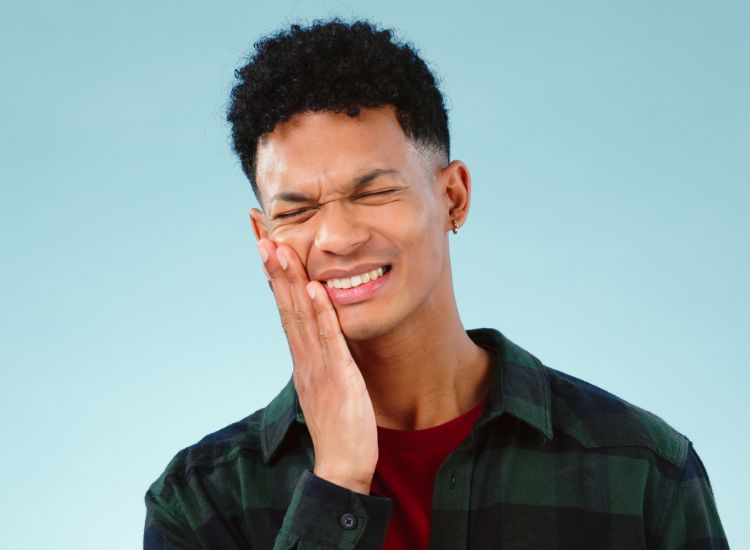How to Prevent Dental Emergencies
Tips for Keeping Your Teeth Safe and Healthy
Dental emergencies can strike at any time, often when you least expect them. Whether it’s a sudden toothache, a cracked tooth from an injury, or a dislodged filling, these situations can be stressful and painful. Fortunately, with a few proactive steps, you can significantly reduce your risk of experiencing a dental emergency. At Kissing Camels Family Dentistry, we believe that prevention is key to maintaining both your oral health and your peace of mind. As the best dentist in Colorado Springs, CO, we’re here to share expert tips on how to prevent dental emergencies and protect your smile.
Practice Good Oral Hygiene
One of the most important steps in preventing dental emergencies is maintaining a solid oral hygiene routine. Brushing your teeth at least twice a day, flossing daily, and using mouthwash will help keep plaque and bacteria at bay. Regular cleaning removes harmful substances that can cause cavities, gum disease, and other oral issues that could lead to emergencies later on. Brushing with fluoride toothpaste strengthens your enamel, making your teeth more resistant to decay and wear.
Visit the Dentist Regularly
Even if you don’t feel pain or discomfort, regular visits to the dentist are essential for preventing potential emergencies. The best dentist in Colorado Springs, CO will perform thorough checkups and cleanings to detect issues early on, such as cavities, gum disease, or misalignment problems. Catching these concerns in their early stages can save you from more serious problems in the future.
Routine dental exams can also prevent emergencies by ensuring your fillings, crowns, or other restorations are intact. If these restorations are showing signs of wear or damage, your dentist can address the issue before it turns into an emergency.
Wear a Mouthguard for Sports
If you participate in contact sports or activities with a high risk of injury, wearing a mouthguard is an essential preventive measure. Sports-related dental injuries, such as broken or knocked-out teeth, are common but often avoidable with the right protection. A mouthguard absorbs the impact and protects your teeth from being damaged during accidents or collisions. Even if you play non-contact sports, it’s still a good idea to wear a mouthguard to prevent tooth injury.
At Kissing Camels Family Dentistry, we can custom-make a mouthguard that perfectly fits your mouth, offering superior protection compared to over-the-counter options. Custom mouthguards also provide more comfort and allow you to breathe and speak more easily during physical activities.
Be Mindful of What You Chew
Some foods and habits can put excessive pressure on your teeth, leading to fractures or cracks. Avoid chewing on hard objects like ice, popcorn kernels, or hard candy, as they can damage your enamel or cause a tooth to break. Similarly, avoid biting your nails, using your teeth as tools (such as opening packages), or grinding your teeth, especially at night. Teeth grinding (bruxism) is a common cause of tooth damage and discomfort, and it often occurs unconsciously during sleep.
If you’re prone to grinding your teeth, ask your dentist about a night guard, which will protect your teeth while you sleep and prevent unnecessary wear and tear.
Protect Your Teeth from Tooth Decay
Tooth decay is one of the leading causes of dental emergencies. Cavities can develop slowly over time and, if left untreated, can lead to infections, tooth abscesses, and severe pain. To protect your teeth from decay, be mindful of your diet, particularly sugary snacks and drinks. Sugar feeds bacteria in your mouth, which can lead to plaque buildup and the development of cavities.
Drinking plenty of water throughout the day, especially after eating, helps wash away food particles and bacteria. Additionally, avoid frequent snacking, as this increases the time your teeth are exposed to harmful acids. If you’re at risk for tooth decay, talk to your dentist about fluoride treatments, which can strengthen your enamel and make your teeth more resistant to cavities.
Treat Sensitive Teeth Promptly
If you’re experiencing tooth sensitivity, don’t ignore it. Sensitivity can be a sign of gum recession, enamel erosion, or a cavity forming. Over time, untreated sensitivity can lead to more serious problems, such as root damage or infection. Visiting your dentist at the first sign of sensitivity can help prevent further damage and ensure your teeth remain in good health.
Your dentist may recommend treatments like desensitizing toothpaste, fluoride applications, or restorative procedures to address the root cause of your sensitivity and prevent it from leading to a dental emergency.
Avoid Smoking or Using Tobacco Products
Smoking and tobacco use not only have a negative impact on your overall health but can also damage your teeth and gums. Tobacco products increase your risk of gum disease, tooth loss, and oral cancer, all of which can lead to dental emergencies. Quitting smoking is one of the best things you can do for your oral and overall health. If you’re looking to quit, talk to your dentist about resources and support that can help you on your journey.
Address Issues Early
If you notice any signs of dental problems, such as pain, swelling, or sensitivity, don’t wait for the issue to worsen. Many dental emergencies can be avoided by addressing problems early. If you feel pain, notice bleeding gums, or see that a filling or crown is loose, it’s important to schedule an appointment with your dentist right away. Ignoring these issues could result in more serious problems down the line.
Contact Us
Preventing dental emergencies is all about taking proactive measures to protect your oral health. By practicing good oral hygiene, visiting the dentist regularly, wearing a mouthguard during sports, being mindful of what you chew, and addressing any dental concerns promptly, you can reduce the risk of unexpected dental issues.
At Kissing Camels Family Dentistry, we are committed to helping our patients maintain healthy, beautiful smiles through preventive care. As the best dentist in Colorado Springs, CO, our team of skilled professionals is here to provide personalized advice and treatment to ensure your long-term dental health. Don’t wait for an emergency—schedule your routine checkup today and let us help you keep your smile bright and healthy for years to come.



